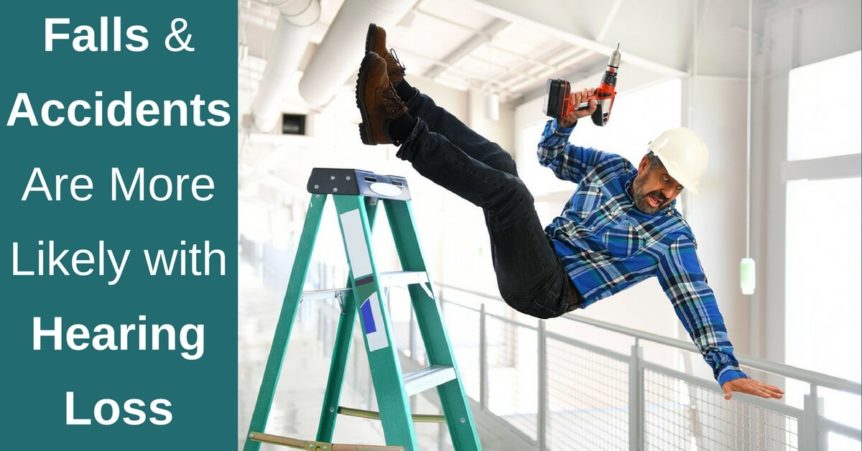As the Baby Boomers age into a life stage where hearing loss is accepted as par for the course, a stronger spotlight is being shown on the impact of hearing loss. The inconveniences of social and verbal interaction are more widely known now than ever before. However, there are hidden dangers to hearing loss that go well beyond this the office cocktail party.
In a new study published in JAMA Otolaryngology-Head & Neck Surgery, researchers report a significant association between hearing difficult and accidental injury, particularly when engaging in activities related to work or leisure. They recommend increasing the awareness surrounding hearing loss as well as timely screenings and management of the condition in order to reduce potential accidents.
The results are in
In order to reach the conclusion that hearing loss significantly raises your risk for accidents and falls, researchers first used data from a nationwide health survey conducted by the Centers for Disease Control and Prevention. The data encompassed reported histories of 232.2 million adults, 15.7% of whom reported hearing problems. 2.8% of the survey’s population were injured in an accident within three months of the survey date.
Respondents’ degrees of hearing, from “excellent” to “lot of trouble,” indicated the likelihood of injury. Folks with a little trouble hearing were 60% more likely to experience injury, those with moderate trouble hearing were 70% more likely. Those reporting at the highest spectrum of hearing loss, “a lot of trouble hearing,” were 90% more likely to injury themselves in a fall or accident.
Prevalence of hearing loss
Hearing loss affects an enormous portion of the population. In fact, it’s a major public health issue, with more than 48 million Americans reporting some degree of hearing loss. The likelihood of a hearing loss diagnosis increases with age. One in three people over the age of 65 has hearing loss, often the result of the normal aging process.
It is staggering that most people who have hearing loss don’t intervene for almost a decade, as reported by the Hearing Loss Association of America. What that tells us is that this demographic of folks is unknowingly going about the world with a much-increased risk of injury.
But wait, don’t wait!
The time to intervene in hearing loss is always as soon as possible. The benefits of intervention go beyond ease of conversation, though anyone with hearing loss will attest to the emotional and physical toll that challenging conversation can take on a person.
Part of the reason that hearing loss might result in a higher rate of accidents and injury is due to our listening capabilities adding to our awareness of surroundings. For instance, you wouldn’t ride a bike with headphones in. Blocking out external noise would mean eliminating what might be helpful signals that danger is approaching or nearby.
Other benefits of intervention
Beyond the increase in your own safety from accidents and falls, there are some really important emotional and mental side effects that come from intervening in hearing loss. People with hearing aids are less likely than those with untreated hearing loss to suffer from the depression that stems from increased isolation stemming from hearing loss.
What’s more, intervening early in hearing loss can also help to retain the healthiest degrees of hearing possible. You see, much of how we hear actually occurs in the brain. This portion of the brain gets used to receiving less and less sound information from the auditory nerve and over time, our ability to receive and process this sound information into comprehensive hearing is lost. Keeping that auditory system active and engaged is worth it down the road!
Get your hearing tested today
Of course, the researchers in the previously cited study also recommend frequent hearing screenings to monitor hearing health. Scheduling an appointment with us at Custom Hearing Solutions for you or a loved one couldn’t be easier. Once a diagnosis is in hand, you can begin to examine next steps. Preventing accidents and falls by intervening in hearing loss is a wonderful way to practice practical and effective preventative care. Remember, there’s no recovery time associated with proactively adding a hearing aid into your life!

